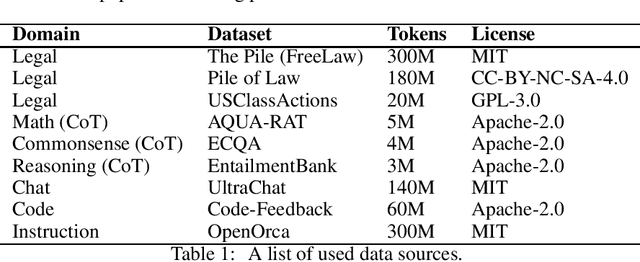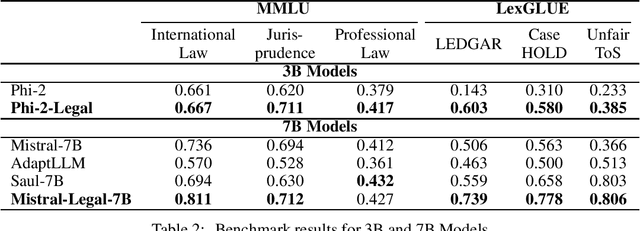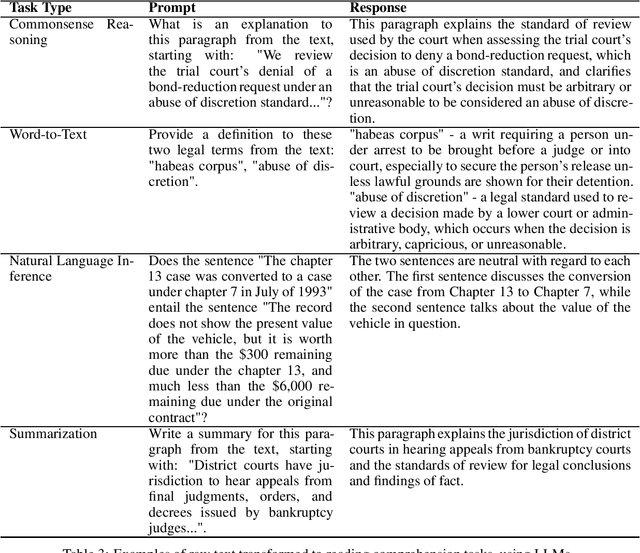TransformLLM: Adapting Large Language Models via LLM-Transformed Reading Comprehension Text
Paper and Code
Oct 28, 2024


Large Language Models (LLMs) have shown promise in highly-specialized domains, however challenges are still present in aspects of accuracy and costs. These limitations restrict the usage of existing models in domain-specific tasks. While fine-tuning pre-trained models have shown promising results, this process can be computationally expensive and require massive datasets of the specialized application in hand. In this work, we bridge that gap. We have developed Phi-2-Legal and Mistral-Legal-7B, which are language models specifically designed for legal applications. These models are based on Phi-2 and Mistral-7B-v0.1, and have gone through continued pre-training with over 500 million tokens of legal texts. Our innovative approach significantly improves capabilities in legal tasks by using Large Language Models (LLMs) to convert raw training data into reading comprehension text. Our legal LLMs have demonstrated superior performance in legal benchmarks, even outperforming models trained on much larger datasets with more resources. This work emphasizes the effectiveness of continued pre-training on domain-specific texts, while using affordable LLMs for data conversion, which gives these models domain expertise while retaining general language understanding capabilities. While this work uses the legal domain as a test case, our method can be scaled and applied to any pre-training dataset, resulting in significant improvements across different tasks. These findings underscore the potential of domain-adaptive pre-training and reading comprehension for the development of highly effective domain-specific language models.
 Add to Chrome
Add to Chrome Add to Firefox
Add to Firefox Add to Edge
Add to Edge